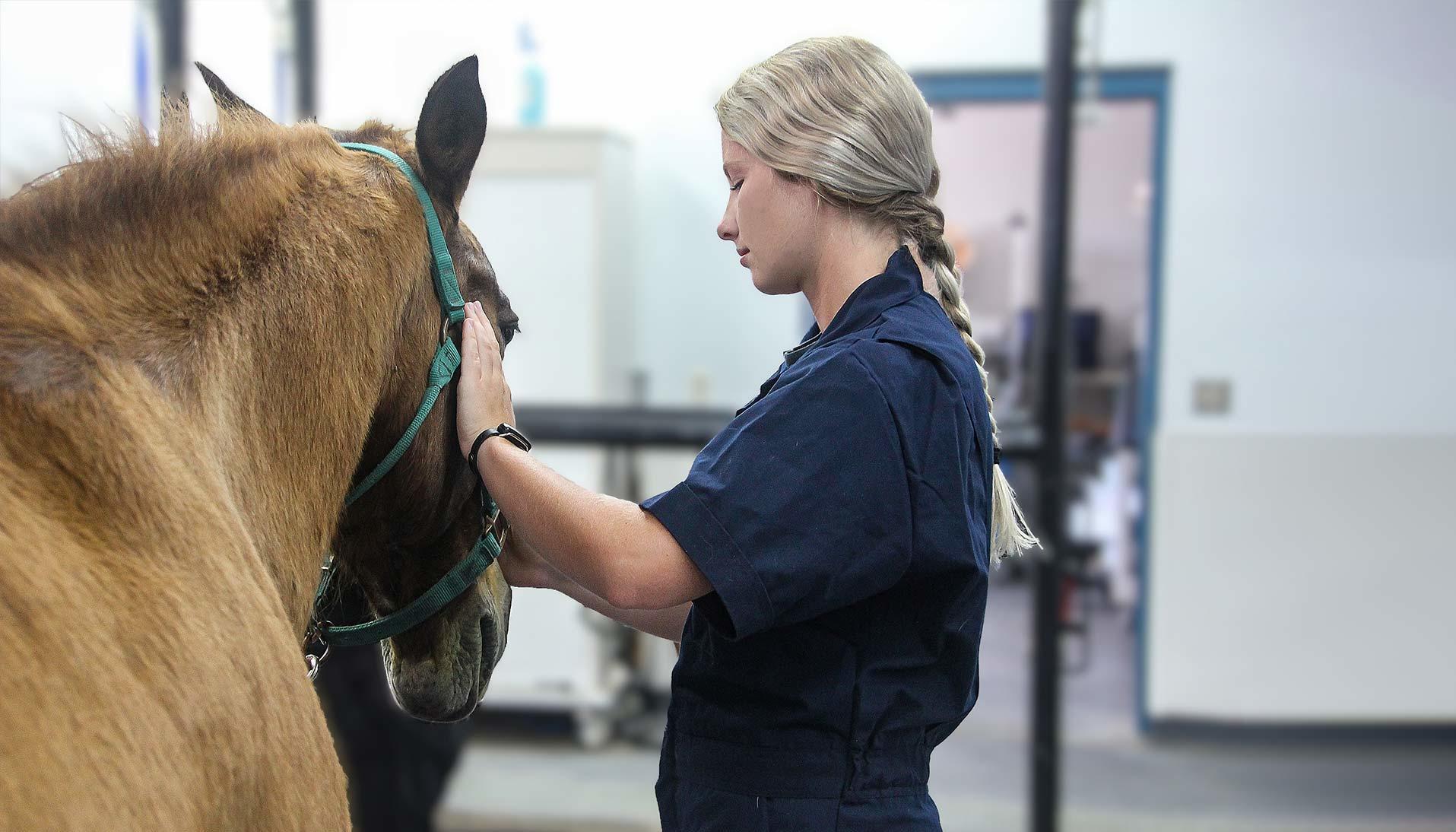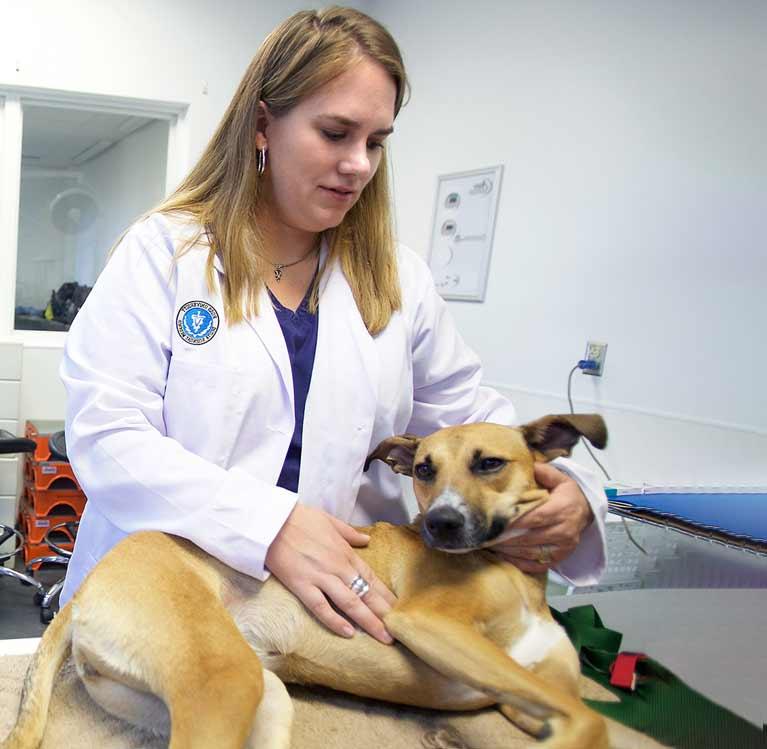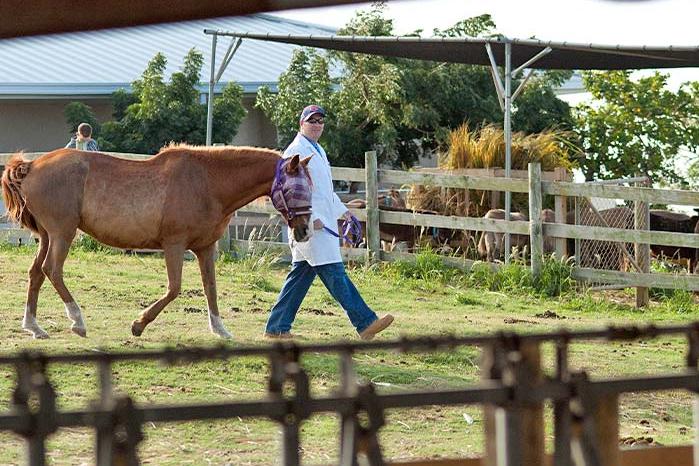DO WHAT YOU LOVE WHILE POSITIVELY IMPACTING GLOBAL HEALTH
Following a veterinarian career path may provide you the opportunity to contribute to both animal and human health, food quality and safety, food security, behavior, biomedical research, wildlife, and environmental health.
QUALIFIED DVM DEGREE HOLDERS CAN EXPLORE A VETERINARY MEDICINE CAREER IN AREAS LIKE:
According to a 2018 AVMA member market research study from 2018, 64% of veterinarians choose a veterinary medicine career working in private practice, providing health care for companion animals.
Many veterinarians become general practitioners, providing primary care to small or large animals. Private practitioners offer many services including health exams, vaccinations, treatment of ill animals, surgery, and emergency care. Others become specialists, focusing solely on small animal surgery, cardiology, ophthalmology, or emergency animal medicine.
Wildlife veterinarians are licensed animal health professionals who specialize in treating many different types of wildlife, including birds, amphibians, reptiles, and mammals.
They may work either in a veterinary office setting or in the field and often work closely with wildlife rehabilitators. Shelter medicine practitioners collaborate with communities and both private and public agencies, helping homeless domestic and wild animals stay happy and healthy.
Vets may work primarily as small animal, equine or large animal doctors, and combine their veterinarian career path with wildlife work. Some wildlife vets choose to work exclusively with exotic animals or native wildlife species.
Practitioners can also work in the public health sector with government agencies to help control zoonoses and vector-borne diseases, emergency response, and preventative programs against agro-terrorism.
Agencies like the European Food Safety Authority, Departments of Agriculture, the National Institutes of Health, the Centers for Disease Control and Prevention, and the Food and Drug Administration all work to employ veterinarians in fields such as regulatory medicine, agricultural animal health, disease outbreak investigation, and environmental quality
Other veterinary career options include teaching and research. Veterinarians working as teachers in universities and veterinary schools educate students and future veterinarians as well as perform research.
Veterinary teaching and research allow for the continuous advancement in medicine. Research professionals focus on curing human and animal disease, while understanding the biology behind it, and the medicines used to combat them. Researchers may be in a variety of settings, including the private sector, research and development, pharmaceutical companies, governmental and non-governmental agencies, academic programs, and clinical settings.
THERE ARE MANY EXCITING CAREER OPPORTUNITIES IN VETERINARY MEDICINE
Once you graduate, there are exciting career opportunities in veterinary medicine that await you in the veterinary field—whether that’s working in a small practice, continuing your training in a specialized internship or residency leading to board certification, working in research or academia, or becoming a practitioner in the public sector, you can find veterinary career options that fit your interests.
Studying animal life and disease ultimately helps to improve our understanding of human life and disease.






